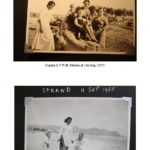Edesio Fernandes – Informal Settlements: What Can South Africa Learn From The Brazilian Experience?
No comments yetwww.afesis.org.za – April 10, 2013
Despite South Africa’s impressive housing delivery numbers, the growing rates of informal urban development in South Africa have clearly indicated the limits of the national government’s housing policy to date. In this context, what can South Africa learn from the Brazilian experience regarding the matter of how to confront the phenomenon of informal development? After all, there are many possible layers of comparison between both countries, to such an extent that Brazil’s economic development especially since the 1970s, including its resulting socio-spatial structure, has often been criticised as a process of “social apartheid”. Unlike South Africa, urban development has long consolidated in Brazil, with 83% of people currently living in urban areas.
This process has been visibly marked by intense socio-spatial segregation, and over several decades an enormous segment of Brazilian society – the vast majority, in many cities – have only had access to urban land and housing through a wide range of informal processes. However, informal development is not new in Brazil, nor is the formulation of public policies aimed at the regularisation of consolidated informal settlements. I would argue that there are several general, conceptual lessons, both positive and negative, that can be learnt from the Brazilian experience by South African public authorities and community organisations, especially while the South-African process of urban development is still far more manageable than the Brazilian one. In hoping to contribute towards this growing discussion in South Africa, I will briefly present my main findings following over three decades dealing with the matter of informal development in Brazil, as well as in several other Latin American countries such as Mexico, Colombia and Peru.
Read more: http://www.afesis.org.za/what-can-south-africa-learn-from-the-brazilian-experience
You May Also Like
Comments
Leave a Reply





